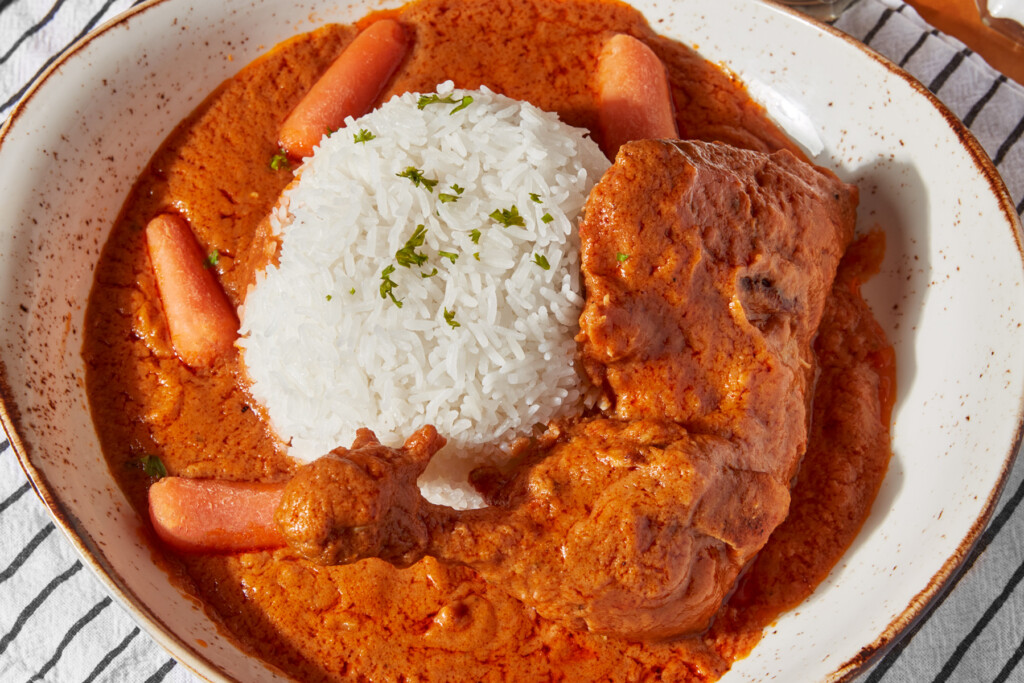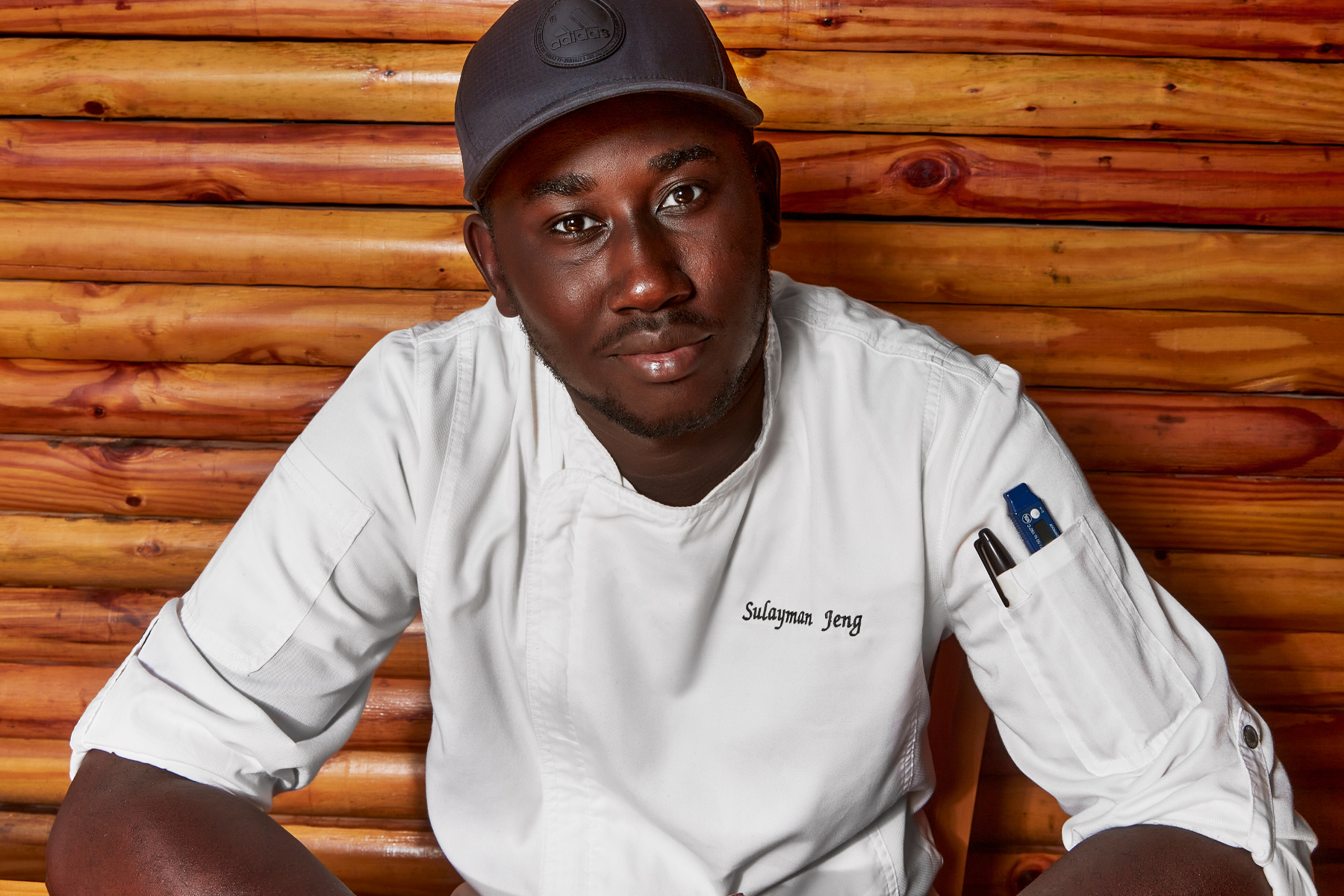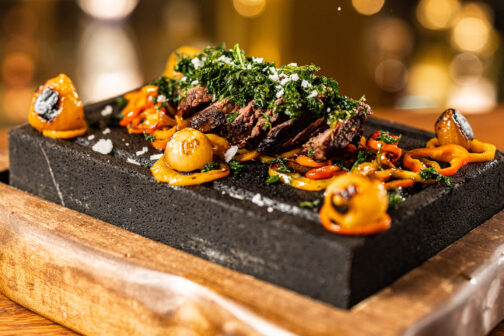The Gambia is the smallest country in mainland Africa. It snakes narrowly along the Gambia River from its mouth at the Atlantic Ocean to a point about 300 miles upstream, surrounded on land entirely by Senegal.
Sulayman Jeng came to the United States from The Gambia twice. The first time was before he was born; his mother had lost a previous child, a daughter, and traveled to Maryland for better medical care during her next pregnancy. Jeng was born in Maryland, but he stayed for only six months. He returned to America at age 19, looking for work.
With no prior kitchen experience, he got his start as a prep cook at The Cheesecake Factory. As he moved from job to job in Dallas and Houston, including stints at a number of local hotels and the House of Blues, Jeng didn’t think much about what his future held.
“One of my chefs one day asked me, ‘Sulayman, what do you want to do? Do you want to be a chef?’ ” he recalls. “I tell him, ‘I don’t even know.’ He told me, ‘Why don’t you think of opening an African restaurant?’ I’d never been to an African restaurant, and I’d never seen one. I never thought of opening one. I told him, ‘Chef, I’m Muslim. I don’t sell alcohol; I don’t serve pork. Who is going to come to my restaurant?’ And secondly, I told him, ‘I have to have money to open a restaurant.’ ”
But that conversation lit a spark. For years, Jeng worked multiple jobs, saved the money he didn’t send back home to his family, and looked for a location that would accept a first-time business owner. Now his restaurant, West African Way, is open in Plano. It serves a short, concise menu of popular items from The Gambia, Senegal, Mali, and neighboring countries, all made from scratch.
It would be both true and false to say it brings an entirely new cuisine to the Dallas area. The plates here are not served at other restaurants, but they are a profound part of America’s culinary identity. West Africans, forced across the Atlantic as enslaved people, created the basis for cuisines across the Americas. Ingredients such as peanuts, okra, and rice were ubiquitous in Africa before they became beloved staples in the American South. Supa kanja, an okra stew flavored with fish, is the direct ancestor of gumbo.
Side dishes, such as fried plantains and meat pies, will be recognizable to diners who’ve enjoyed Caribbean food. Alongside his petite meat pies, Jeng offers a fiery dipping sauce made with roasted red bell peppers, garlic, onions, and habaneros. The pie itself is nothing special—a thick, bready crust around well-seasoned ground beef—but I’ll dip anything in the sauce. I plan to experiment with making it at home, and if it’s not as good, maybe Jeng will sell it by the jar.
The best use of such appetizers is to snack on them while the mains are being prepared. Since Jeng cooks everything to order, the West African Way experience is one to take slowly. Don’t come here thinking you can grab a quick lunch and leave. Bring friends you haven’t caught up with in a while, order appetizers and a refreshing cup of baobab juice, and settle in. Listen to the African music concerts that stream on the television. Give in to the rhythm, as if you’re at a friend’s house for a dinner party.
(As this article was going to press, in early August, Jeng had found another chef to join him in the kitchen—an Ivory Coast native—but for the first eight months of business, he often cooked alone.)
Let’s start our feast by peeling open a hot foil packet. It’s called dibi, and like all the best street food, it is loaded with flavor. When you tug the foil back, you’ll first notice a pile of chopped onions and dollops of a yellow sauce that mixes mustard with garlic and spices. Although many African countries and cooks use Dijon mustard, The Gambia is primarily Muslim, and Jeng keeps halal by avoiding mustards made with white wine.
Somewhere under the onions and sauce are six or seven lamb chops, their juicy pockets of fat blessedly untrimmed. The lamb chops have been aggressively seasoned, but the mustard-and-onion sauce shines brightly over the salt. Jeng grills the lamb chops first, adds them to the foil packet, and then allows the whole parcel to cook over the wood-burning grill for another minute, steaming the onions to soften them and help them absorb the seasonings.
His grill also gets a workout with chicken yassa, a simple regional dish originally from Senegal. Between the heavy spice mix and the flames of the grill, the chicken acquires an almost blackened look. (Remember this the next time someone tells you an American chef invented blackened seasoning.) The meat underneath that coating, though, is soft and tender—it is marinated overnight, as are the appetizer chicken wings—and perfectly cooked. If you can grill like this at home, your neighbors probably invite themselves over a lot on the weekends.
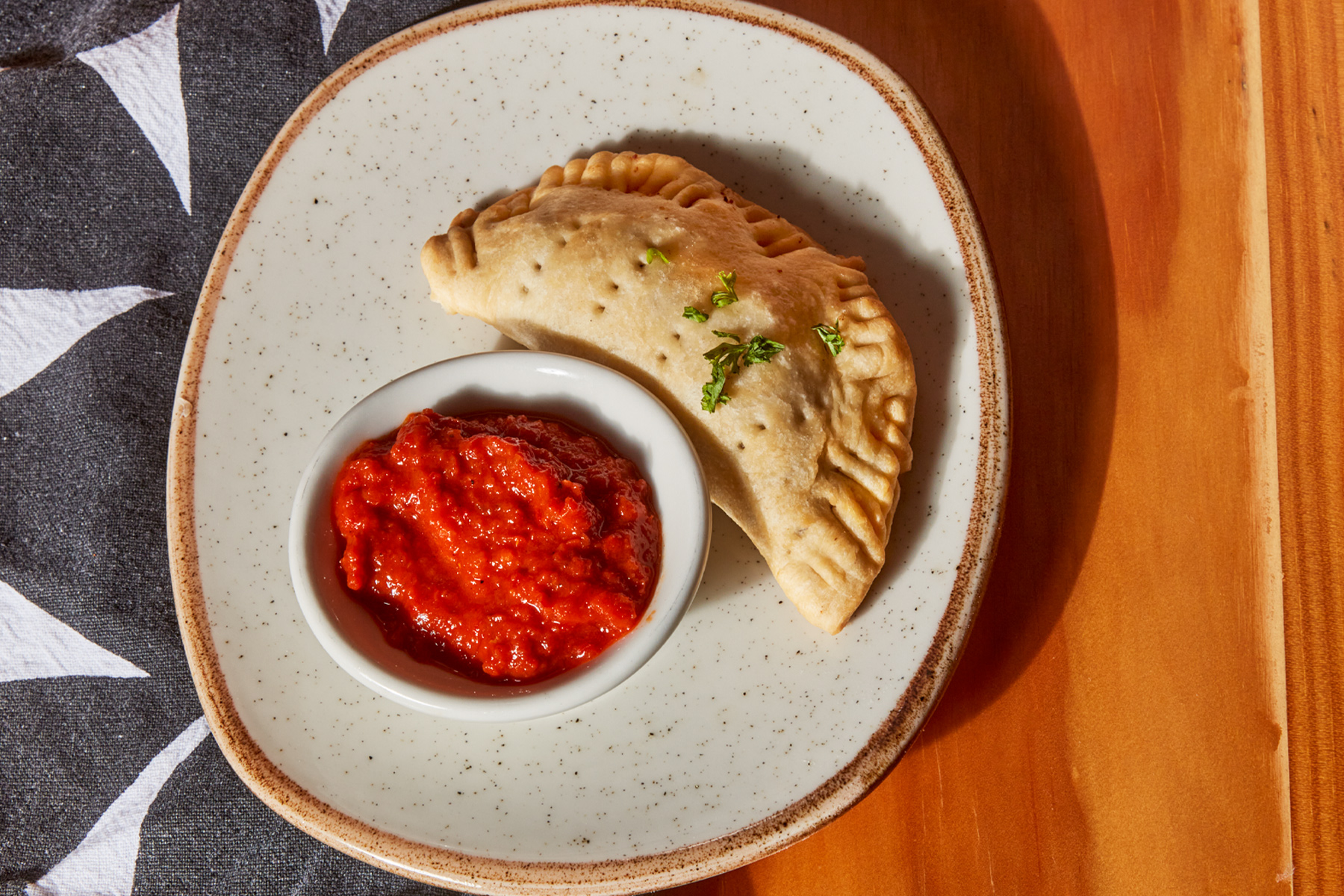
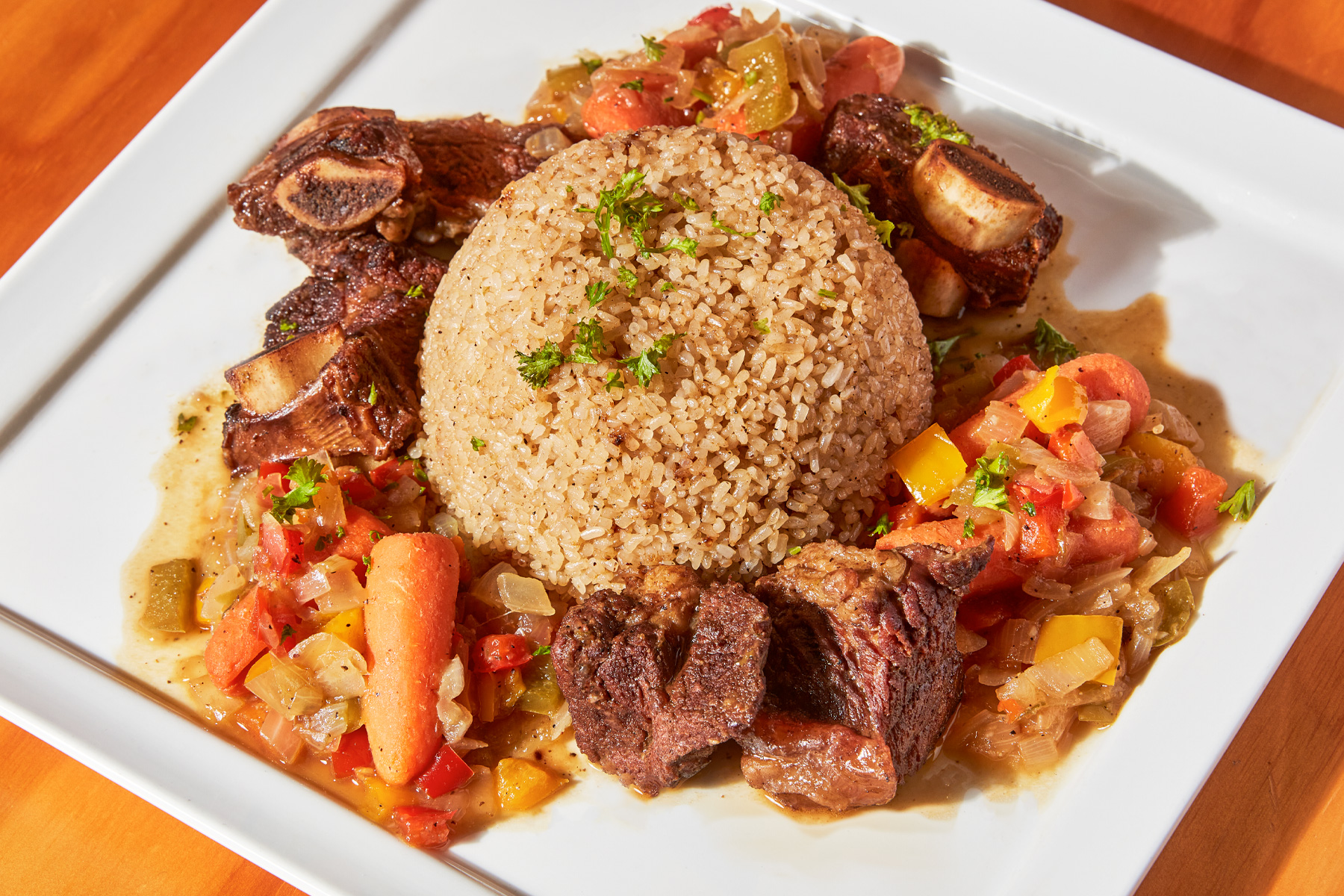
Two other mains favor deep, slow-cooked flavors. Domoda takes a while to cook—my order simmered for 45 minutes—but it is a comforting dish served in an enormous portion. Two chicken leg quarters, braised until tender in a savory peanut sauce, are served with a huge scoop of rice. Peanuts impart their flavor and an oily richness, and there’s a peppery note that adds a little bit of heat, too.
The other big braise, benachin, is a Senegalese specialty. A pot of broken jasmine rice, the pieces as small as couscous, soaks up broth from a rich stew of beef, lamb, and vegetables until it turns a deep brown. Alongside the mound of rice, Jeng arranges the stewed meat and vegetables, including fork-tender beef. I do wish the carrots were not prepolished baby ones, with their extra rush of cultivated sweetness.
Jeng’s food is not just good enough to make me lick onion-mustard sauce off my fingers. It is also a lesson in perspective.
Benachin is not typically served this way in Senegal and The Gambia. “The beef, how you cook it in Africa, is different,” Jeng says. “It’s fried, very fried, a little bit oily. Here, I cook it in the juice to make it tender. If an American comes here and I give them how it’s cooked in Africa, they will say it’s overcooked. But,” he says, laughing, “if I make it tender, an African will complain it’s too tender.”
His observation is a reminder that what is considered “good” in food is relative, not absolute. Different cultures love different textures and techniques. Some people like oily. It’s a simple point, but it can change the way that you think when you try new dishes and new cuisines.
“A lot of people, when they come here, they’ve never tried African food,” Jeng says. “Most of them come here in groups, four or five, and they order one of everything. They just look at the menu, and they order everything. You don’t just want to try benachin and go home.”
Jeng’s food is not just good enough to make me lick onion-mustard sauce off my fingers. It is also a lesson in perspective. Dig into a bowl of okra stew here, and you won’t think about gumbo the same way. Tuck into a foil packet of grilled lamb chops, and the image will linger in your mind the next time you’re at a backyard cookout. West African Way is one man’s attempt to bring his culture to his new homeland, but it’s also a reminder that the distance between those two places is shorter than we think.
This story originally appeared in the September issue of D Magazine with the headline, “Take It Slow.” Write to [email protected].
Get the SideDish Newsletter
Author



